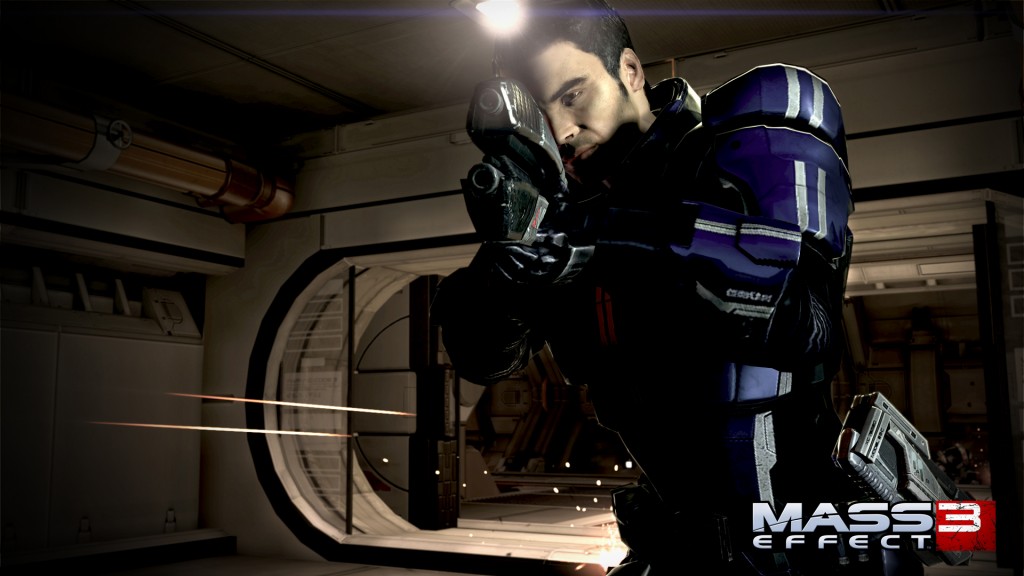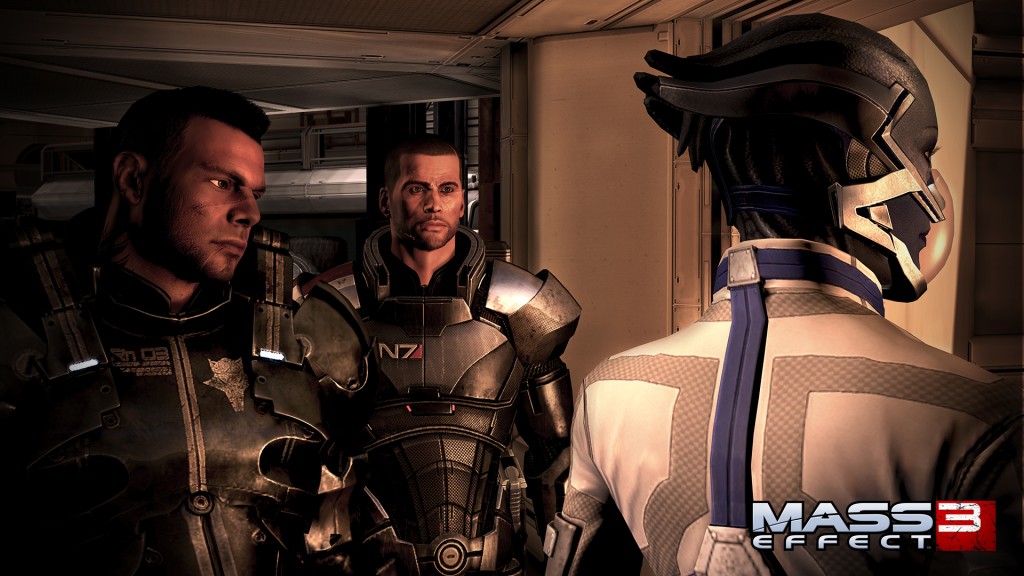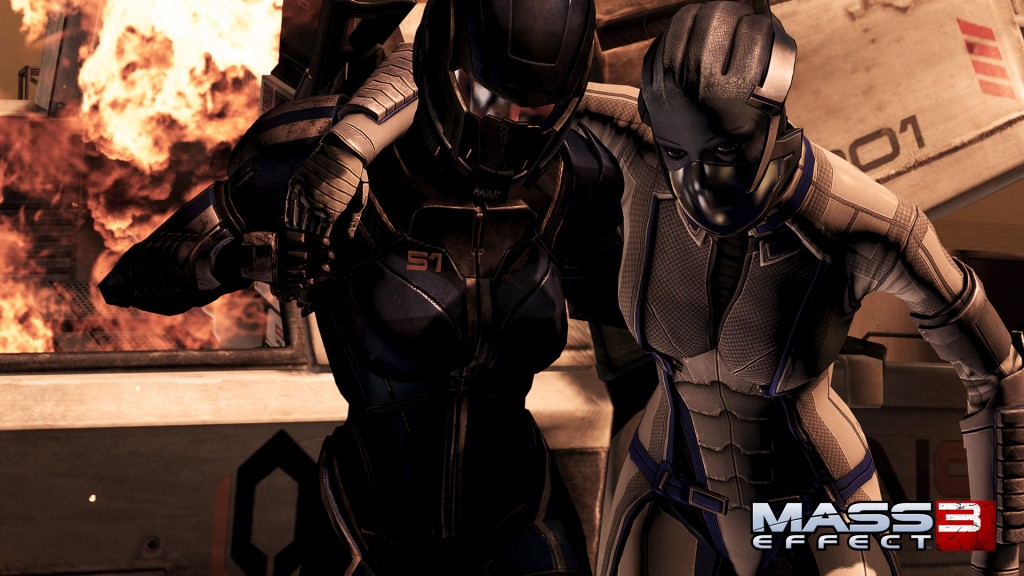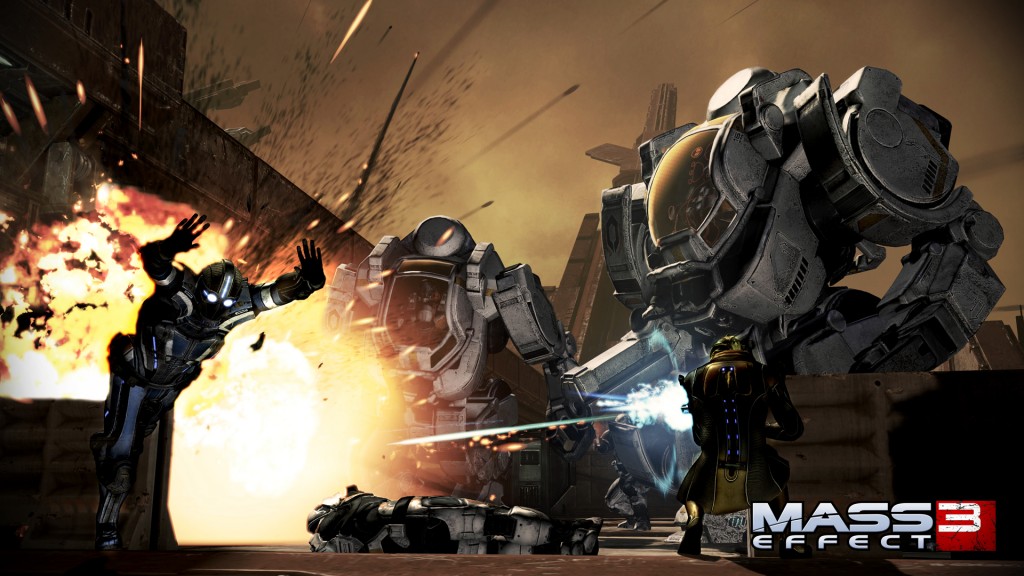Breaking the Illusion of Control – Did Mass Effect Gamers Expect Too Much?
Four and a half years ago, Bioware released the most ambitious undertaking in the history of gaming to date: to give gamers the ability to choose their own destiny in a videogame, making choices that would have repercussions rippling throughout an entire trilogy.
However, the end of the Mass Effect series has left many gamers angry. They argue that the choices that they made in the three installments had no impact on the end, and they now feel that all their time making those careful decisions was wasted. It could be argued that Bioware had set gamers’ expectations too high, letting down those who put in literally hundreds of hours of gameplay. But it could also be debated that it was the players themselves that had set their hopes too high. Furthermore, many people are arguing that Bioware used a Deus Ex Machina in the conclusion of the series. For this article, we’ll be taking a look at these arguments, as well as some of the events in the series to draw several conclusions regarding the end of what has been touted as the greatest science-fiction series in video games.
Oh, by the way….spoiler alert!
You have been warned.
A large debate right now revolves around the use of a plot device in Mass Effect 3. Deus Ex Machina quite literally means God Out of the Machine. It is a longtime plot device originating back from the days of the Greeks where a deity would come down from the heavens to resolve a story where the protagonist did not have the means to resolve it themselves. The meaning would later be expanded to include other plot devices such as acquiring a spell, certain armor, or an object that would give the protagonist the ability to defeat an otherwise unbeatable enemy.
In Mass Effect 3, the Deus Ex Machina would be the Crucible. The Crucible is a device that was designed by the ancient race of beings known as the Protheans, who left the plans for it in an archive on Mars for humans to find. This device had the ability to defeat the Reapers, but for reasons unknown, the Protheans didn’t have time to build it. In the end of Mass Effect 3, the Crucible combines with the Citadel to create a weapon that gives Shepard the ability to either control or destroy the Reapers depending on the choice that the gamer makes.
The fact that Bioware used a plot device such as this to resolve such an epic story arc has made a lot of players angry. However, looking back on the series, it was almost literally spelled out through the entire trilogy that the galaxy was going to need something a lot bigger than the guns they had in order to defeat the Reapers. In the first game, it took the entire Alliance fleet to destroy the first Reaper, Sovereign, and that is only after Shepard and crew weakened the creature by defeating a Sovereign-controlled Husk that was once Saren (the series’ first protagonist). Knowing how powerful one Reaper was, and fed with the knowledge that more are on the way, the player knows it will take a much bigger stick than what the Alliance is packing to defeat the army heading your way.
The series continues to spell this out for the player at the end of Mass Effect 2 when an armada of Reapers is seen heading towards our galaxy, numbering in the thousands. Without some kind of plot device being introduced, Mass Effect 3 would have amounted to little more than Shepard having a five-minute discussion with the Human Defense Council regarding the Reapers, the Reapers showing up on Earth, and a bright red flash of light. End game. Roll credits. Thank you for your sixty dollars.
Perhaps the most prominent topic views the baffling predicament of a conclusion drawn from a debacle of choices versus a fitting and logical ending. With literally hundreds of choices available to a gamer in the trilogy, it’s hard to believe that the decisions you make would have such a little impact on the ending. But the fact of the matter is they make a much larger impact than most gamers realize, even if the changes are more subtle. For example, on Tuchanka, when you are on a mission to cure the Genophage, there are subtle decisions that you make that will determine if Eve (the female Krogan who has the cure for the disease in her genetic makeup) lives or dies. Or, perhaps a better example would be with the conflict between the Geth and the Quarians: depending on your actions in regards to allowing Legion to upload Reaper code to the Geth (thus making them truly independent beings), the end result can culminate in the decimation of the Quarian Migrant fleet, and the subsequent suicide of Tali Zorah.
However, the end of Mass Effect 3 angered gamers because all of those decisions had no effect on the actual outcome of the conclusion. Instead, each player is given three options: 1) to destroy all Reapers and all synthetic life, including the Geth; 2) take control of the Reapers; or 3) initiate a synergy between organic and synthetic life, creating an all new life form. All three of these endings result in the Mass Relays being destroyed and Shepard being killed, and then there are other subtle changes in each version (such as EDI being absent when Joker exits a crashed Normandy if you picked the “destroy all synthetics ending”). However, these all meet the logical conclusion to the end of the series: Humanity wins, Reapers lose.
It’s very clear that Bioware took the “it’s about the journey, not the destination” route regarding the end of Mass Effect 3. However, we were given exactly what was promised: a conclusion to the Reaper trilogy, and the end of Commander Shepard’s story arc. Many people would argue that the destruction of the Mass Relays would paint the series in a corner regarding the possibilities of later adventures, but I don’t think that’s correct. It’s been established that FTL (Faster Than Light) travel between star systems is possible without the Mass Relays, and it’s not necessarily out of the realm of possibilities that scientifically adept societies such as the Salarians would be capable of building their own Mass Relays using their already existing knowledge of the technology. An entire series could be dedicated to the rebuilding of a galactic society and the pitfalls that are sure to be encountered.
No matter how disagreeable players find the end, one of the important things to take away is that, while every single choice doesn’t immediately manifest itself in the conclusion, the aftermath of Shepard’s choices will have an enormous impact on the future of the galaxy. Did Shepard leave behind a galaxy of fractious, single-minded races whose sole goal now is survival? A galaxy of opportunists who, following a Renegade Shepard’s example are going to use the galactic chaos in the wake of the Reapers to seize control and dominate other races? Or is he or she leaving behind a legacy of cooperation and hope that no matter what the odds, sentient life – not merely biological or synthetic – will come together and triumph?
The Reapers have been programmed to wipe out any civilization sufficiently advanced, leaving the galaxy full of races who likely haven’t even advanced to the point of creating a language. The fact that Shepard has left the galaxy with a starting point that has evolved beyond fly-eating mud dwellers is a triumph in itself, no matter what shape it takes.
BioWare took a huge chance in ending the game in a way that requires a little bit more thought to really appreciate. Just like a movie monster is scarier in the audience’s imagination, the post-Shepard development of galactic civilization left to a player’s own hopes and desires is probably much more satisfying than anything that BioWare could have come up with.
In the end, Bioware has set a benchmark that other companies should be looking at in terms of gameplay and the length of a story. It’s hard to say that we didn’t get what we paid for, when the average single player campaign nowadays is ten hours tops. While players grieve over the fact that a character that they created and lived as their own in a universe so vast has passed on, I think we should take a moment to marvel at the amount of content that Bioware has weaved for us.
It’s easy for us to say that we want a number of conclusions to take into consideration the hundreds of decisions we made in the game, but realistically speaking, tailoring that many outcomes would be something unreasonable to ask (as there could potentially be thousands of them), especially given that in the end, one of two things happens, we either win, or we lose. It’s important to realize that every journey has to come to an end whether we like it or not. We would rather our Shepards go out with a bang, than wither away in some old folks’ home on Thessia. Let’s look forward to the next trilogy, with a new character, and a brave new galaxy.
About This Post



